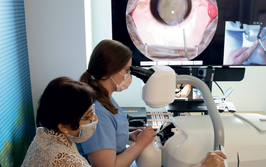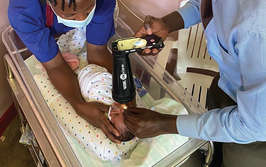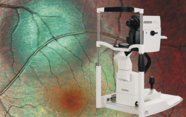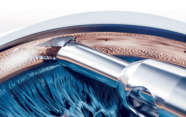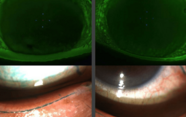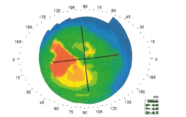Also in the News…
The Ophthalmologist brings you the top news stories and studies of the week
Alun Evans | | 3 min read | News

From figuring out whether meibomian gland dysfunction (MGD) can be classed as one sole disease, to phacoemulsification versus laser peripheral iridotomy (LPI) for the treatment of primary angle closure glaucoma (POAG), these are the trailblazing studies that caught our attention this week…
Single-dose sight. Regenxbio has published results from its phase I/IIa trial evaluating the safety and tolerability of a single dose of subretinal ABBV-RGX-314 for the treatment of wet age-related macular degeneration. The Lancet-published paper, titled “Gene therapy for neovascular age-related macular degeneration by subretinal delivery of RGX-314: a phase 1/2a dose-escalation study,” reports positive results. CEO Kenneth T. Mills said, "We have started 2024 with strong, positive new data from the ABBV-RGX-314 program, and we believe that there is multi-billion-dollar potential for ABBV-RGX-314 to become a first-in-class gene therapy for wet AMD and the standard of care to treat and prevent progression of diabetic retinopathy.”
Retinal thinning in Parkinson’s. A new Journal of Parkinson's Disease study has used optical coherence tomography (OCT) data to examine whether any retinal changes could be observed in de novo, “treatment-naive” Parkinson’s disease (PD) patients. The University of Groningen researchers found that PD patients showed a significantly reduced retinal thickness when compared with healthy controls – especially within the inner plexiform layer, which helped differentiate it from the lesser retinal thinning caused by early primary open angle glaucoma (POAG). Link
MGD - one size fits all? Seeking to determine if meibomian gland dysfunction (MGD) can be defined as a single disease, a team of multi-institutional US researchers – based out of the Bascom Palmer Eye Institute, the VA Miami Healthcare System, and the VA Memphis Medical Center – investigated MGD features (including eyelid vascularity, MG plugging, MG dropout) and their various associations with inflammatory proteins used to treat dry eye disease (DED). Reporting that these features are differentially related to several inflammatory cytokines, the team suggest the potential of more targeted therapy. Link
Phacoemulsification wins the POAG bout. In a systematic review and meta-analysis, the authors of a new Clinical Ophthalmology study – based at King Saud Bin Abdulaziz University for Health Sciences, University of Bisha, and King Khaled Eye Specialist Hospital in Saudi Arabia – have determined that phacoemulsification is better at treating primary angle closure glaucoma (POAG) than using laser peripheral iridotomy (LPI). The researchers stated that, though both methods can be effective, cataract surgery showed better corneal results in the meta-analysis than LPI. Link
Coming from a creative writing background, I have a great interest in fusing original, narrative-driven concepts with informative, educational content. Working at The Ophthalmologist allows me to connect with the great minds working in the field of contemporary eye care, and explore the human element involved in their scientific breakthroughs.
